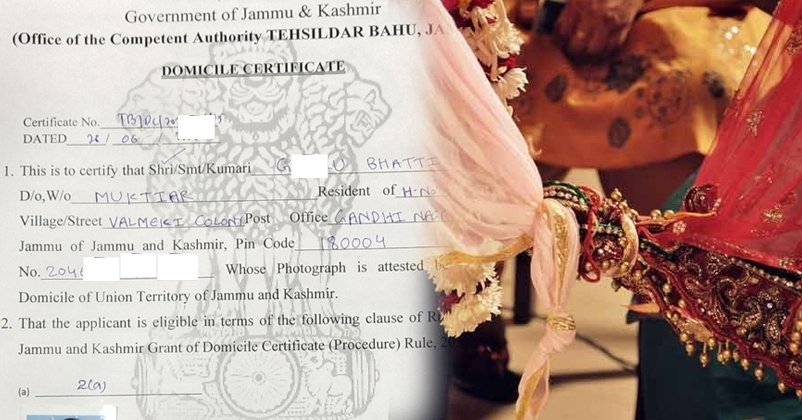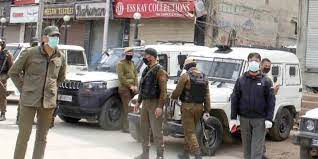58 Non-Locals Issued Domicile Certificates in Kashmir: Marriage Grounds Spark Debate
In a significant development, the Jammu and Kashmir government disclosed in the Legislative Assembly that 58 non-locals have been issued domicile certificates in the central Kashmir town of Beerwah, Budgam. These certificates were granted on the grounds of marriage, raising eyebrows and igniting discussions across the political spectrum.
The revelation came as part of a written response to a query posed by Dr. Muhammad Shafi, MLA from Beerwah, during a session in the Assembly. Responding to the question, Sakina Masood (Ittoo), Minister for Social Welfare, stated that these non-locals were indeed granted domicile certificates, a measure that adheres to specific provisions under existing regulations.
Context and Implications
The government’s decision to grant domicile on marriage grounds has stirred a lively debate in Jammu and Kashmir, a region that has been navigating complex political and social changes in recent years. While marriage is a recognized criterion under certain legal frameworks for granting domicile status, critics argue that this could open the door to broader demographic shifts within the region.
Minister Sakina Masood emphasized that the certificates were issued in strict accordance with the guidelines, ensuring procedural integrity. However, concerns have been raised by several local representatives and civil society groups about the potential implications on the delicate socio-political fabric of the region.
Historical Perspective
The move to issue domicile certificates to non-locals aligns with changes introduced post-August 2019, when Jammu and Kashmir’s special status under Article 370 was abrogated. The newly defined domicile laws allow individuals from outside the region to claim domicile under specific circumstances, including employment, land purchase, and, as in this case, marriage.
Local Reaction
Reacting to the announcement, several community leaders have called for greater transparency and a thorough review of the process to ensure it does not compromise the rights and interests of local residents. “This is a sensitive matter,” one community spokesperson remarked, “and it requires careful consideration.”
The Road Ahead
As discussions unfold, it remains to be seen whether this policy will face further scrutiny or result in revisions. Meanwhile, the issue highlights the evolving identity politics in Jammu and Kashmir and reflects the broader challenges of maintaining balance in a region characterized by its rich history and unique demographics.


